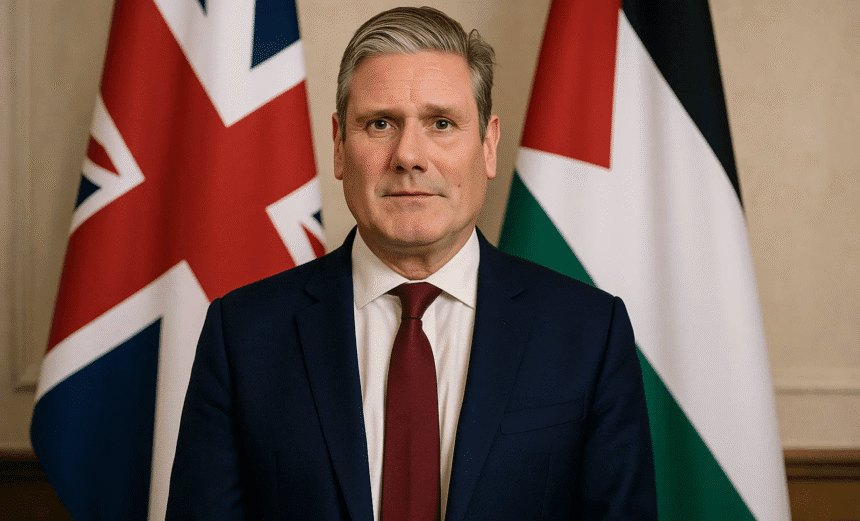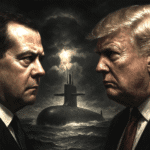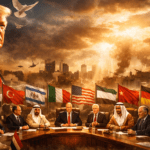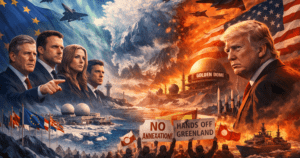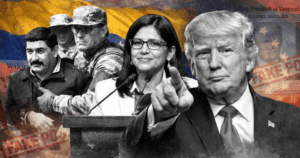In a striking departure from decades of British Middle East diplomacy, Prime Minister Keir Starmer announced on 29 July 2025 that the United Kingdom is prepared to recognize the State of Palestine at the upcoming UN General Assembly unless Israel takes “substantive steps” toward a Gaza ceasefire and renewed peace process. Starmer framed this as a moral and strategic intervention: “Palestinian statehood is an inalienable right”, he declared, citing harrowing images of starving children in Gaza.
That move closely followed France’s earlier announcement, as the first major Western power, that it, too, would formally recognize Palestine at the September UN session. Together, these decisions render Western Europe’s two formerly Sykes‑Picot architects of the modern Middle East, Britain and France, into critical arbiters of Palestinian statehood more than a century after drawing the initial lines.
The Irony of Sykes‑Picot Redux: From Dividers to Disavowal
The 1916 Sykes‑Picot Agreement secretly carved the territories of the Ottoman Empire between Britain and France, placing Palestine under British influence and Syria/Lebanon under French control which an arrangement that laid groundwork for the British Mandate, the Balfour Declaration, and ultimately the creation of Israel.
Now, history has flipped. The same states that imposed the colonial architecture of mandatory Palestine are on the verge of recognizing a Palestinian state, conditional on Israel reversing policies they once helped enforce. The symbolic reversal raises deep questions about legitimacy, memory, and imperial responsibility: British and French policymakers once positioned themselves as architects, and at times, guardians, of Israel’s foundations. Today, they threaten recognition of Palestine as a counterweight to policies they helped institutionalize.
Strategic Implications: Diplomatic Levers and the Two‑State Solution
This policy pivot functions as more than symbolism. Starmer has conditioned recognition on Israeli compliance with key demands: ceasefire, humanitarian access with at least 500 aid trucks a day, no annexation, and commitment to negotiations. French endorsement of the UK’s move reinforces a growing European bloc challenging Israeli policy, according to AP News.
Although recognition from France and the UK remains largely symbolic, it could shift legal interpretations at the UN and ICC, strengthen Palestinian claims internationally, and embolden other European states weighing recognition. The United States remains alone among permanent UN Security Council members in abstaining from recognition, adding isolation pressure on Washington and Israel.
Domestic and International Reactions: From Starmer’s Party to Netanyahu’s Rebuke
In the UK, Starmer faced internal pressure: over a third of his cabinet and more than 130 Labour MPs had urged formal recognition. Foreign Secretary David Lammy emphasized Britain’s historical “burden of responsibility” stemming from the 1917 Balfour Declaration and earlier mandates.
Israel reacted swiftly and harshly. Prime Minister Netanyahu dismissed the UK‑France trajectory as rewarding terrorism, warning that “a jihadi state on Israel’s border” threatens Europe’s future, according to Reuters. US President Trump echoed the sentiment, calling the recognition move a reward for Hamas.
A Final Note: Rewriting Sykes‑Picot’s Legacy?
As September approaches and the UN General Assembly looms, the UK and France appear ready to rewrite the post‑Ottoman script they once authored. Their shift underscores profound historical irony: the colonial powers that drew the original Sykes‑Picot lines are now conditioning recognition based on undoing those legacies.
If carried through, their recognition may mark a turning point in Palestinian diplomacy, transforming recognition into an active instrument of pressure, rather than a passive status. It’s a reversal not only of policy but of century‑old narratives, highlighting how historical actors can evolve from creators of borders to challengers of those same structures.

